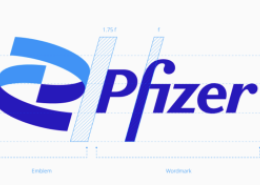ELIQUIS®(apixaban) Approved in Europe for Prevention of Stroke and Systemic Embolism in Patients with Nonvalvular Atrial Fibrillation
Only anticoagulant proven to show superior risk reductions versus warfarin in three important outcomes: stroke, major bleeding and all-cause death First approval in any market worldwide of ELIQUIS for preventing strokes and systemic embolism in patients with nonvalvular atrial fibrillation
(BUSINESS WIRE)--Bristol-Myers Squibb (NYSE: BMY) and Pfizer (NYSE: PFE) announced today that the European Commission has approved ELIQUIS® (apixaban) for prevention of stroke and systemic embolism in adult patients with nonvalvular atrial fibrillation (NVAF) with one or more risk factors. ELIQUIS is the only oral anticoagulant that has demonstrated superior risk reduction versus warfarin in the three important outcomes of stroke and systemic embolism, major bleeding, and all-cause mortality. ELIQUIS is an oral direct Factor Xa inhibitor, part of a novel therapeutic class. This is the first regulatory approval in any market for ELIQUIS for stroke prevention in patients with nonvalvular atrial fibrillation.
“Patients with atrial fibrillation have a five times greater risk of stroke and there remains a critical public health need for improved treatment options to reduce this risk,” said Lars Wallentin, Director and Professor of Cardiology, Uppsala Clinical Research Centre and University Hospital, Sweden. “The approval of ELIQUIS represents an important new treatment option for health care professionals, who now have an oral anticoagulant with superior outcomes versus warfarin in the reduction of stroke, major bleeding and death in patients with nonvalvular atrial fibrillation.”
The marketing authorization for ELIQUIS is supported by the pivotal Phase 3 trials ARISTOTLE and AVERROES, which evaluated approximately 24,000 patients with NVAF in the largest completed clinical trial program conducted to date in this patient population. The ELIQUIS clinical program is the only Phase 3 clinical program among the new oral anticoagulants to evaluate the safety and efficacy of ELIQUIS versus aspirin in patients who were unsuitable for vitamin K antagonist (VKA) therapy.
“Today’s approval of ELIQUIS in the EU is the result of a strong collaboration between Bristol-Myers Squibb and Pfizer to help address the unmet need for improved treatment options versus warfarin to reduce the burden of stroke in patients with nonvalvular atrial fibrillation,” said Lamberto Andreotti, Chief Executive Officer, Bristol-Myers Squibb. “With its compelling clinical profile, ELIQUIS represents the commitment of our partnership with Pfizer to scientific innovation and our shared vision of bringing innovative and meaningful medicines to patients.”
“We are confident in ELIQUIS and its differentiated profile and believe it has the potential to transform the standard of care in stroke prevention in nonvalvular atrial fibrillation,” said Ian Read, Chairman and Chief Executive Officer, Pfizer. “With our combined cardiovascular leadership and expertise, we believe that we will successfully introduce this important medicine to patients and physicians in the EU.”
ELIQUIS 5 mg is indicated as a twice-daily oral medication for prevention of stroke and systemic embolism in adult patients with NVAF with one or more risk factors, such as prior stroke or transient ischaemic attack (TIA); age ≥ 75 years; hypertension; diabetes mellitus; symptomatic heart failure (NYHA Class ≥ II). ELIQUIS does not require International Normalized Ratio (INR) monitoring and there are no known dietary restrictions.
The first-line use of ELIQUIS and other new oral anticoagulants (NOACs) is recommended in The European Society of Cardiology Guidelines for the management of AF where oral anticoagulation is recommended, recognizing the important benefits that ELIQUIS offers in preventing NVAF-related stroke.
CLINICAL TRIAL PROGRAMME
ARISTOTLE
As described in the SmPC, in the ARISTOTLE Apixaban for Reduction in Stroke and Other Thromboembolic Events in Atrial Fibrillation) trial, ELIQUIS achieved statistically significant superiority in the primary endpoint of prevention of stroke (haemorrhagic or ischaemic) and systemic embolism compared with warfarin. ELIQUIS was superior to warfarin in the primary efficacy endpoint of stroke/systemic embolism, with a 21% relative risk reduction beyond warfarin (1.27% vs. 1.60%, HR=0.79, CI=0.66, 0.95, P=0.0114). ELIQUIS was superior to warfarin for the primary safety endpoint of major bleeding, with a 31 percent relative risk reduction (2.13% vs. 3.09%, HR=0.69, CI=0.60, 0.80, P<0.0001). Intracranial hemorrhage, a subset of major bleeding, occurred with lower incidence with ELIQUIS compared to warfarin (0.33% vs. 0.80%, HR=0.42, CI=0.30, 0.58, P<0.0001).ELIQUIS was superior to warfarin in the key secondary endpoint of all-cause death, with an 11% relative risk reduction (3.52% vs. 3.94%, HR=0.89; CI=0.80, 1.00, P= 0.0465).The use of ELIQUIS did not result in an increase in myocardial infarction in the ARISTOTLE trial. The efficacy results for prespecified subgroups, including CHADS2 score, age, body weight, gender, renal function, prior stroke or TIA and diabetes were consistent with the primary efficacy results for the overall population studied in the trial.
The overall discontinuation rate due to adverse reactions was 1.8% for ELIQUIS and 2.6% for warfarin in the ARISTOTLE study.
AVERROES
As described in the SmPC, the AVERROES (Apixaban Versus Acetylsalicylic Acid to Prevent Strokes) trial was designed to demonstrate the efficacy and safety of ELIQUIS versus aspirin for the prevention of stroke or systemic embolism in patients who were unsuitable for VKA therapy.
AVERROES was stopped early based on the recommendation of the trial’s independent Data Monitoring Committee due to clear evidence of reduction of stroke and systemic embolism with an acceptable safety profile. In AVERROES, ELIQUIS was statistically superior to acetyl salicylic acid (ASA) in the primary endpoint of prevention of stroke (hemorrhagic or ischemic) and systemic embolism compared to ASA (1.62% vs. 3.63%, HR=0.45; CI=0.32, 0.62, P<0.0001), as well as in the key secondary composite endpoint of stroke, systemic embolism, MI or vascular death (4.21% vs. 6.35%, HR=0.66; CI=0.53, 0.83, P = 0.003). While not significant, there was an increase in the incidence of major bleeding with ELIQUIS compared to aspirin (1.41%/year vs. 0.92%/year). The incidence of fatal bleeding (0.16%/year vs. 0.16%/year) and intracranial bleeding (0.34%/year vs. 0.35%/year) bleeding were similar in the ELIQUIS and ASA treatment groups.
The safety of ELIQUIS has been investigated in 11,886 patients in NVAF studies treated for an average total exposure of 1.7 years. In ARISTOTLE and AVERROES, 24.4% (ELIQUIS vs. warfarin) and 9.6% (ELIQUIS vs. aspirin) of the patients treated with ELIQUIS (5 mg or 2.5 mg) twice daily experienced adverse reactions. Common adverse reactions were epistaxis, contusion, haematuria, haematoma, eye haemorrhage, and gastrointestinal haemorrhage. The overall incidence of adverse reactions related to bleeding with ELIQUIS was 24.3% in the ELIQUIS vs. warfarin study and was 9.6% in the ELIQUIS vs. aspirin study. In ARISTOTLE study, the incidence of ISTH major gastrointestinal bleeds (including upper GI, lower GI, and rectal bleeding) with ELIQUIS was .76%/year. The incidence of ISTH major intraocular bleeding with ELIQUIS was 0.18%/year.
About Atrial Fibrillation
Atrial fibrillation is the most common cardiac arrhythmia (irregular heart beat). It is estimated that approximately 6 million individuals in Europe have atrial fibrillation. The lifetime risk of developing atrial fibrillation is estimated to be approximately 25% for individuals 40 years of age or older. One of the most serious medical concerns for individuals with atrial fibrillation is the increased risk of stroke, which is five times higher in people with atrial fibrillation than those without atrial fibrillation. In fact, atrial fibrillation is responsible for 15-20% of all ischaemic strokes and 45 percent of all embolic strokes in Europe. Atrial fibrillation-related strokes are more severe than other strokes, with an associated 30-day mortality of 24% and a 50% likelihood of death within one year in patients who are not treated with an antithrombotic.
About ELIQUIS
ELIQUIS is an oral direct Factor Xa inhibitor, part of a new therapeutic class. By inhibiting Factor Xa, a key blood clotting protein, ELIQUIS prevents thrombin generation and blood clot formation. ELIQUIS is the approved trade name for apixaban in Europe and the proposed trade name in the U.S. ELIQUIS is not yet approved for the prevention of stroke or systemic embolism in patients with atrial fibrillation outside of the EU. In May 2011, Bristol-Myers Squibb and Pfizer announced the first regulatory approval for ELIQUIS in the 27 countries of the European Union for the prevention of venous thromboembolic events (VTE) in adult patients who have undergone elective hip or knee replacement surgery, at a dose of 2.5 mg twice daily.
ELIQUIS is also being investigated in Phase 3 trials for the acute and extended treatment of VTE.
About the Bristol-Myers Squibb/Pfizer Collaboration
In 2007, Pfizer and Bristol-Myers Squibb entered into a worldwide collaboration to develop and commercialize ELIQUIS, an investigational oral anticoagulant discovered by Bristol-Myers Squibb. This global alliance combines Bristol-Myers Squibb's long-standing strengths in cardiovascular drug development and commercialisation with Pfizer’s global scale and expertise in this field.
About Bristol-Myers Squibb
Bristol-Myers Squibb is a global biopharmaceutical company whose mission is to discover, develop and deliver innovative medicines that help patients prevail over serious diseases. For more information, please visit http://www.bms.com or follow us on Twitter at http://twitter.com/bmsnews.
Pfizer Inc.: Working together for a healthier world™
At Pfizer, we apply science and our global resources to improve health and well-being at every stage of life. We strive to set the standard for quality, safety and value in the discovery, development and manufacturing of medicines for people and animals. Our diversified global health care portfolio includes human and animal biologic and small molecule medicines and vaccines, as well as nutritional products and many of the world’s best-known consumer products. Every day, Pfizer colleagues work across developed and emerging markets to advance wellness, prevention, treatments and cures that challenge the most feared diseases of our time. Consistent with our responsibility as the world’s leading biopharmaceutical company, we also collaborate with health care providers, governments and local communities to support and expand access to reliable, affordable health care around the world. For more than 150 years, Pfizer has worked to make a difference for all who rely on us. To learn more about our commitments, please visit us at www.pfizer.com.
Bristol-Myers Squibb Forward-Looking Statement
This press release contains "forward-looking statements" as that term is defined in the Private Securities Litigation Reform Act of 1995 regarding product development. Such forward-looking statements are based on current expectations and involve inherent risks and uncertainties, including factors that could delay, divert or change any of them, and could cause actual outcomes and results to differ materially from current expectations. No forward-looking statement can be guaranteed. Among other risks, there can be no guarantee that ELIQUIS will become a commercially successful product in the EU or that it will receive regulatory approval in the U.S. or other markets. Forward-looking statements in this press release should be evaluated together with the many uncertainties that affect Bristol-Myers Squibb's business, particularly those identified in the cautionary factors discussion in Bristol-Myers Squibb's Annual Report on Form 10-K for the year ended December 31, 2011, in our Quarterly Reports on Form 10-Q and our Current Reports on Form 8-K. Bristol-Myers Squibb undertakes no obligation to publicly update any forward-looking statement, whether as a result of new information, future events or otherwise.
PFIZER DISCLOSURE NOTICE:
The information contained in this release is as of November 20, 2012. Pfizer assumes no obligation to update forward-looking statements contained in this release as the result of new information or future events or developments.
This release contains forward-looking information about various indications and potential indications for ELIQUIS (apixaban), including their potential benefits, that involves substantial risks and uncertainties. Such risks and uncertainties include, among other things, (i) the uncertainties inherent in research and development; (ii) the uncertainties regarding the commercial success of ELIQUIS in the EU for the prevention of stroke and systemic embolism in patients with nonvalvular atrial fibrillation; (iii) decisions by the U.S. Food and Drug Administration and regulatory authorities in various other jurisdictions regarding whether and when to approve drug applications that have been or may be filed for potential indications for ELIQUIS as well as their decisions regarding labeling and other matters that could affect the availability or commercial potential of such indications; and (iv) competitive developments.
A further description of risks and uncertainties can be found in Pfizer’s Annual Report on Form 10-K for the fiscal year ended December 31, 2011 and in its reports on Form 10-Q and Form 8-K.
Bristol-Myers Squibb
Laura Hortas (Media)
609-252-4587
[email protected]
or
John Elicker (Investors)
609-252-4611
[email protected]
or
Pfizer Inc.
MacKay Jimeson (Media)
212-733-2324
[email protected]
or
Suzanne Harnett (Investors)
212-733-8009
[email protected]
or
Charlotte Binstead (Media, Europe)
+44 (0)1737 331 521
[email protected]
24-Hour Media line:
+44 (0)845 300 8033








